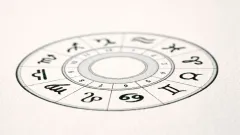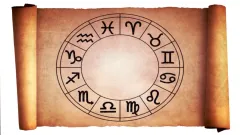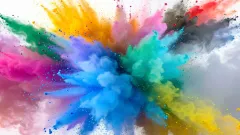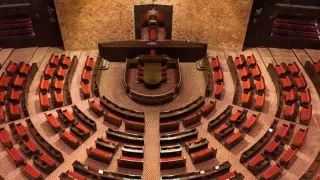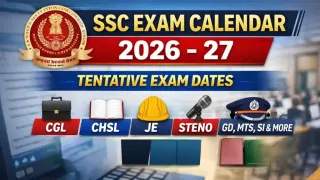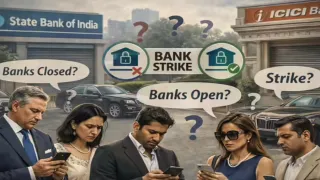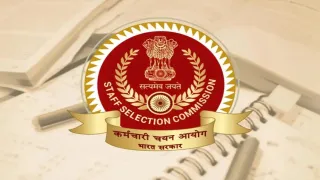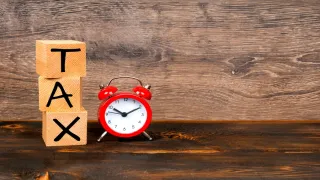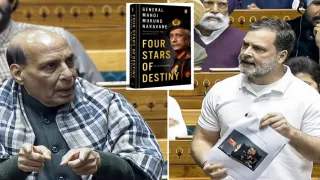The Indian stand-up comedy scene has once again found itself at the centre of controversy as the police abruptly cancelled comedian-actor Anubhav Singh Bassi’s scheduled shows in Lucknow. The cancellation comes in the wake of a letter from the Uttar Pradesh State Women’s Commission, citing concerns over his use of ‘indecent language’ in previous performances. This decision has sparked a heated debate online, with many netizens coming to Bassi’s defence.
The controversy began when the UP State Women’s Commission vice-chairperson, Aparna Yadav, addressed a formal letter to Uttar Pradesh’s Director General of Police (DGP) Prashant Kumar. In the letter dated February 14, Yadav expressed concerns over Bassi’s comedy style, particularly regarding his past use of ‘inappropriate language’ and its potential impact on social decorum.
She stated, 'It has been known that on February 15, a comedy show of Anubhav Singh Bassi is being organised at the Indira Gandhi Pratisthan, Lucknow. After watching his previous shows on his YouTube channel, it has been noted that indecent words are used during his shows. Hence, you (DGP) are expected to please ensure that in this proposed programme and similar programmes of stand-up artists, neither any indecent words nor any undignified comments are made on women. Such shows should be cancelled and not permitted in the future.'
Following the letter, Assistant Commissioner of Police (ACP) Radha Raman Singh confirmed that permission for Bassi’s performances at 3 PM and 7 PM on Saturday was denied due to security concerns. He stated that the possibility of protests and backlash over the nature of his content could pose a law and order issue. The police’s refusal to grant a No Objection Certificate (NOC) effectively led to the show’s cancellation.
While some individuals supported the decision, citing a need for comedians to maintain sensitivity in their content, a majority of online reactions criticized the cancellation. On platforms like Reddit and X (formerly Twitter), users pointed out how the move could set a precedent for unnecessary censorship in comedy.
One user lamented, 'Because of one person now others will suffer. Genuine comedians who want to perform without crossing the line will now get punished.' Others echoed similar concerns, calling it a dangerous step towards stifling free speech.’
On the other hand, some users felt that such measures were necessary to regulate content that could potentially be offensive. 'It’s time such jokes be banned,' wrote one individual, while another called the move ‘long overdue.’
This development closely follows the ongoing controversy surrounding influencer Ranveer Allahbadia, who recently made headlines for his controversial remarks on Samay Raina’s India’s Got Latent show. Ranveer’s joke about parents and sex triggered mass outrage, leading to legal complaints against him, Samay Raina, Apoorva Mukhija, Ashish Chanchlani, and other social media figures present on the show.
Mumbai police recorded statements from those involved but later claimed they were unable to trace Ranveer. In response, the influencer released a statement alleging that he had been receiving death threats and that his mother’s clinic had been stormed by individuals pretending to be clients. Meanwhile, Apoorva Mukhija’s friends revealed that she had been subjected to rape threats online, adding further fuel to the ongoing debate about internet toxicity and the price of public scrutiny.
The cancellation of Bassi’s show has reignited the age-old debate about artistic freedom and censorship in India. While some believe that comedians and entertainers should exercise restraint to avoid offending social and cultural sensibilities, others argue that humour thrives on pushing boundaries.
Bassi, who is also known for his role in Tu Jhoothi Main Makkaar, has not yet commented on the matter. However, his fans remain vocal, emphasizing that restricting comedy could have long-term implications for artistic expression.
As the stand-up scene in India continues to evolve, the incident raises pressing questions: How far should censorship go? And where should the line be drawn between humour and offence? The coming days may provide more clarity, but for now, Bassi’s cancellation has left a lasting impact on the discourse surrounding comedy and free speech in the country.
Also Read: New Income Tax Bill 2025: Changes Every Taxpayer Must Know




